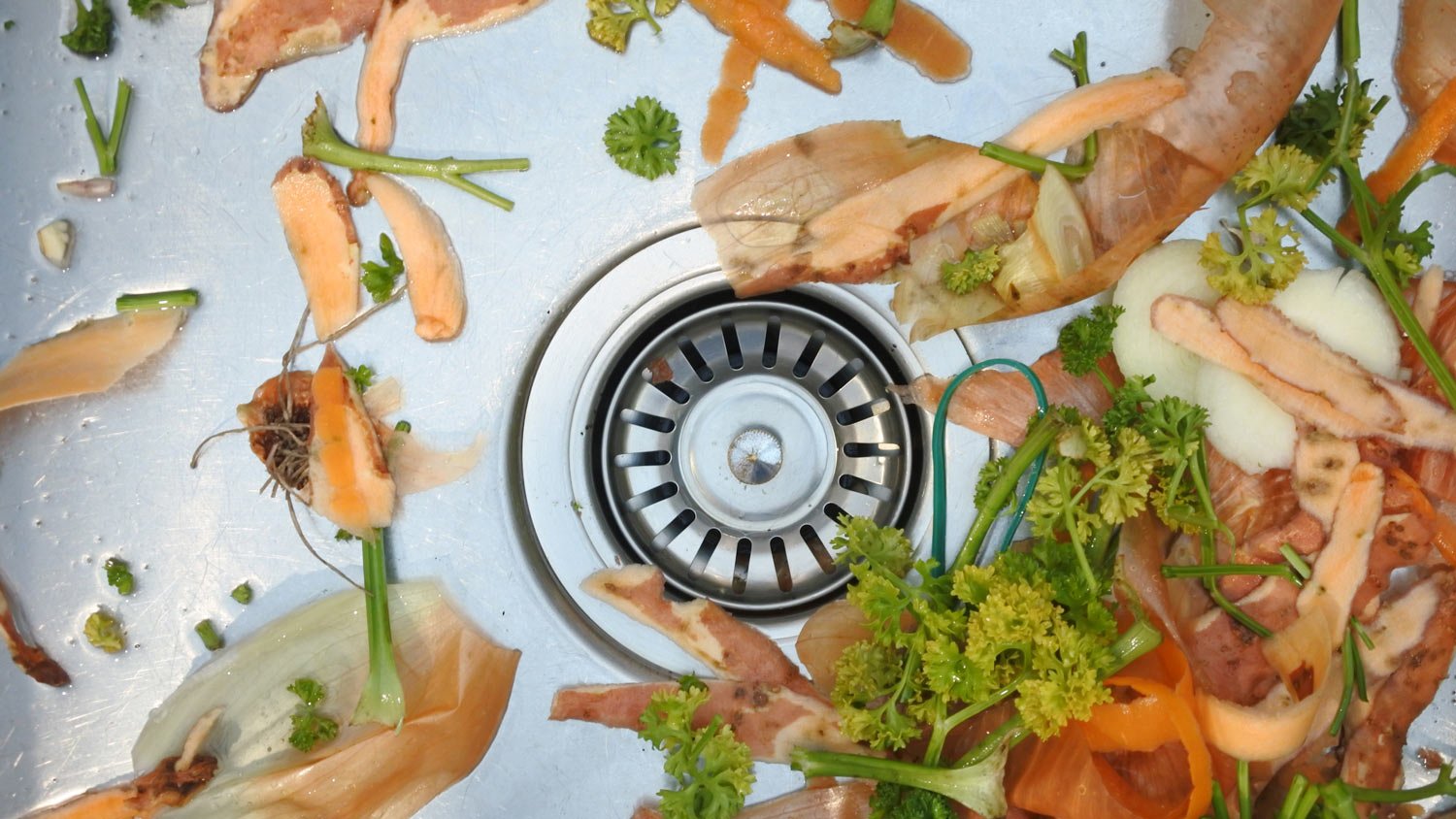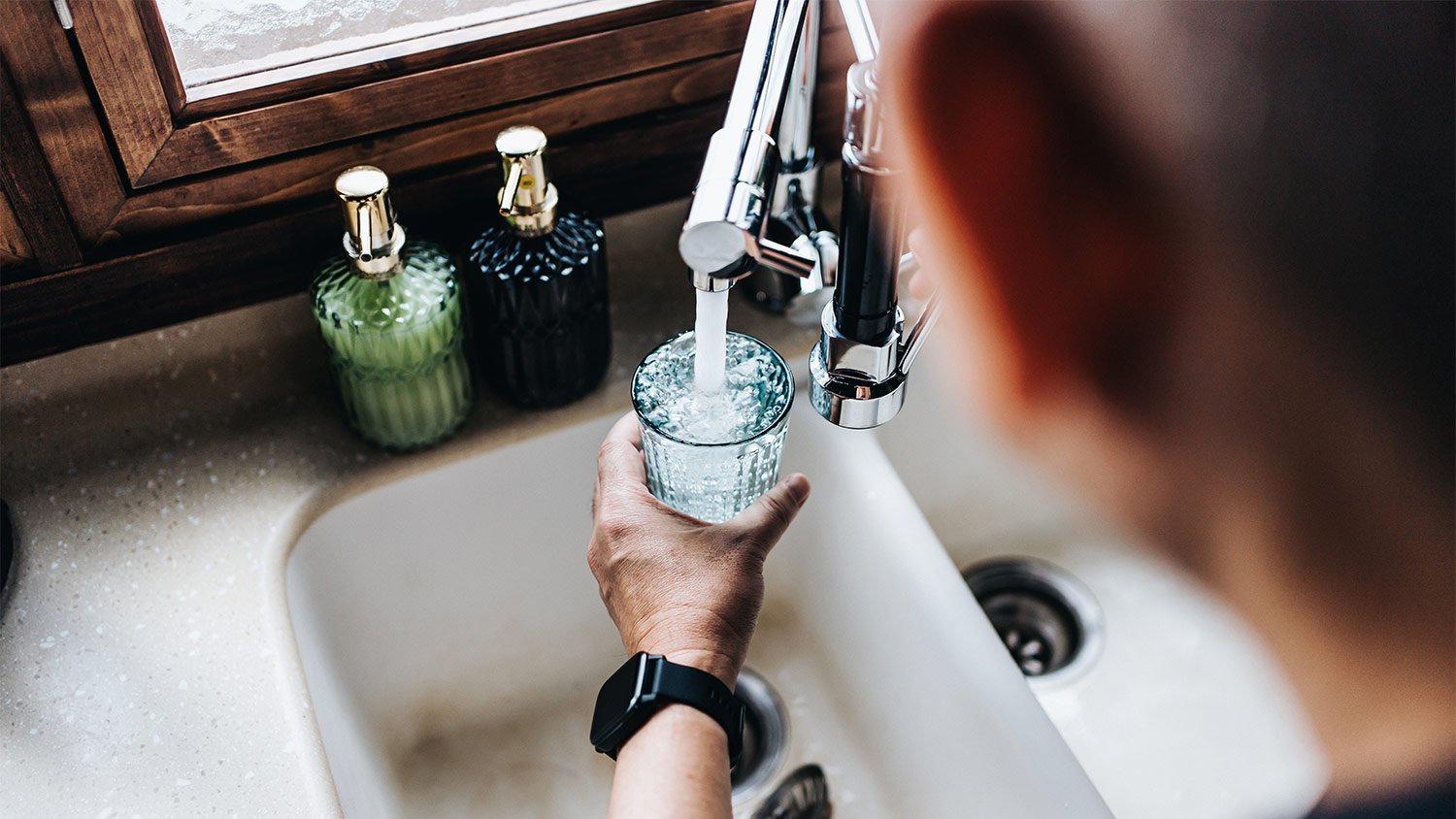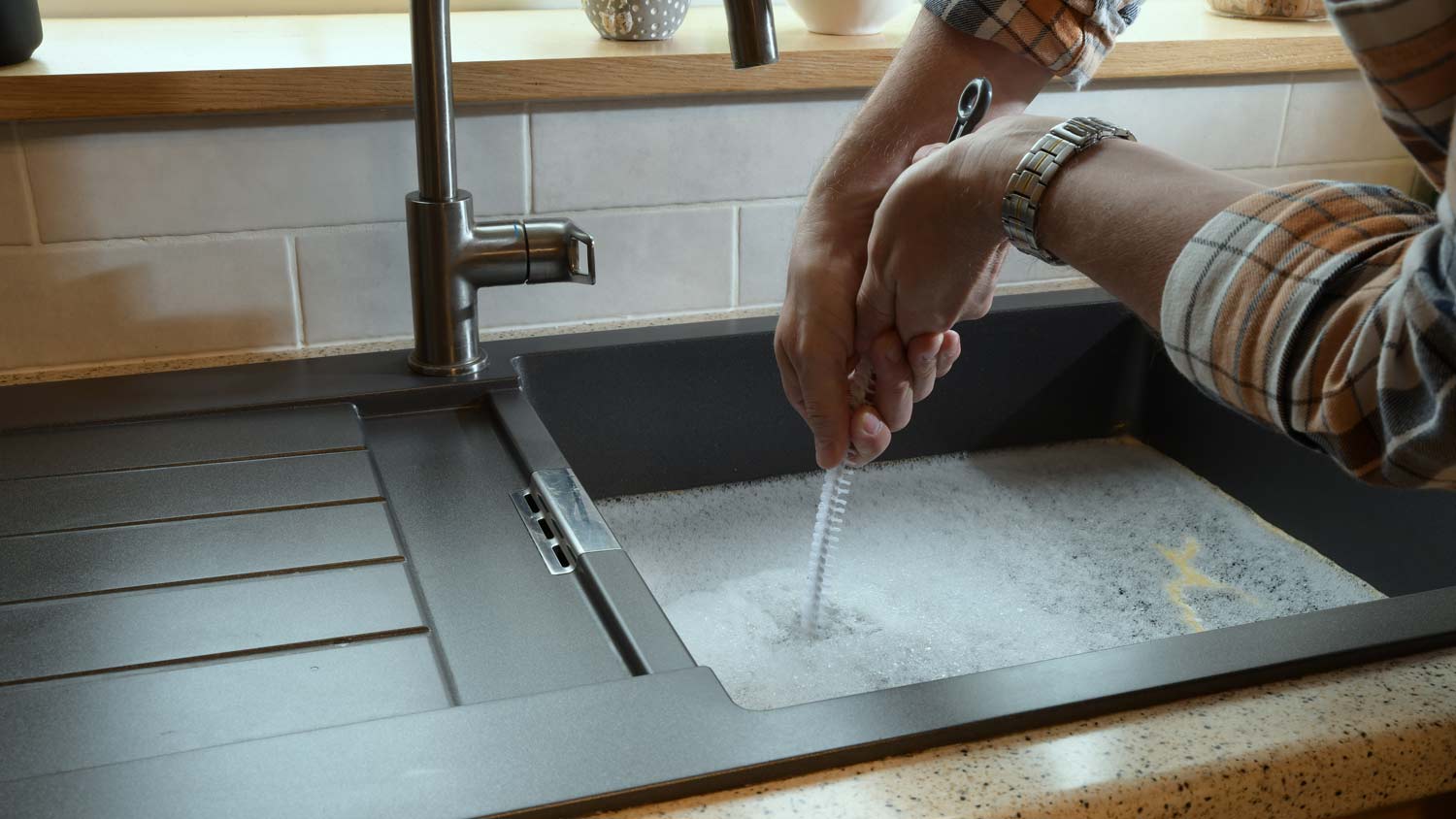What Causes Sewer Gas in Kitchen Plumbing? And Tips for Preventing It
Easy ways to stop the sink stink


Decomposing materials in plumbing systems create smelly sewer gases.
Dry P-traps, blocked vents, or cracked pipes can let gases escape indoors instead of venting outside.
Sewer gas can cause nausea and dizziness and lead to explosion risks in homes.
Fix smells by flushing P-traps, clearing vents, and sealing leaks.
Use drains regularly, inspect them, and keep them clean and in good repair to prevent future sewer gas issues.
A foul, rotten-egg smell in your kitchen could be more than just old leftovers—it might be sewer gas. This unpleasant smell comes from decomposing waste in your plumbing system. Along with being stinky, it can pose health risks if you leave it unchecked. Understanding the causes of sewer gas in kitchen plumbing and how to remove and prevent it will help keep your home safe and smelling clean.
What Is Sewer Gas?
Sewer gas is the byproduct of decomposing organic waste within plumbing systems. It’s an unpleasant but inevitable downside that comes along with all the pros of modern plumbing. This foul-smelling cocktail primarily consists of these natural gases:
Hydrogen sulfide: Gives off the rotten-egg smell
Methane: An odorless but flammable gas
Ammonia: Smells pungent and can irritate eyes and lungs
Carbon dioxide: A dangerous household gas that’s harmless in small doses but asphyxiating in high concentrations
Other trace gases: Small amounts of sulfur dioxide, nitrous oxides, and other gases that may impact home air quality
That’s a combination of gases you don’t want to smell or live with. While your pipes are designed to keep noxious fumes safely contained, certain plumbing issues can allow them to escape to where they’re not wanted—like your kitchen. You can try the remedies below to get rid of sewer gas smells yourself, or you can call a local drain cleaning company to help end the stench.
How Sewer Gas Gets Into Kitchen Plumbing

Common plumbing issues can be an unintentional welcome mat for sewer gas. Here are some ways that sewer gas makes its way into kitchen plumbing:
Dry P-Trap
A P-trap, the curved section of pipe beneath a sink, holds a little bit of water that blocks sewer gases from rising into your home. If that water evaporates due to infrequent use (think: guest bathrooms, vacation homes, little-used sinks, and kitchen sinks during a long getaway), the barrier vanishes and gas creeps in. A quick splash of water can restore order and fresher indoor air.

Clogged or Blocked Vents
Plumbing vent pipes regulate air pressure in drainage systems and provide an escape route for sewer gases—ideally to the outside world. However, blockages from debris, ice, or bird nests can force gases to find an alternate exit, such as your kitchen drain.
Loose or Damaged Seals
Plumbing relies on tight seals to keep water and air flowing where they should. If a sink drain gasket wears out or pipe connections loosen over time, small leaks can form and allow gas to seep into your home unnoticed—until your nose warns you of the breach.
Broken or Cracked Pipes
Drainpipes and vent pipes can crack due to age, shifting foundations, or overzealous DIY plumbing efforts. These breaches allow gas to escape before it reaches your sewer system and lead to persistent odors that won’t go away until you find and repair the damage.
Grease and Food Buildup
While sewer gas is the usual suspect, decomposing food and grease buildup in your drains can mimic the stench. These blockages trap bacteria, which produce their own gases, making it easy to mistake a clogged drain for a more serious plumbing problem.
Is Sewer Gas Harmful?
In small doses, sewer gas is mostly an olfactory nuisance. But is sewer gas dangerous? According to the U.S. Agency for Toxic Substances and Disease Registry, people can face health risks from larger concentrations of or prolonged exposure to hydrogen sulfide, a main component of sewer gas. Exposure can result in:
Headaches, dizziness, and nausea: These unpleasant but temporary symptoms of mild exposure go away shortly after you get some fresh air.
Eye and respiratory irritation: This can be a bigger problem for people with allergies or asthma but fades quickly once you limit contact.
Fatigue and confusion: High levels of sewer gases can affect cognitive function and have longer-lasting impacts.
Explosion risk: Methane is flammable, meaning gas buildup in enclosed spaces can be a disaster waiting for a spark. Take action right away if you smell the telltale rotten-egg scent of sewer gas, experience dizziness or nausea, or otherwise suspect a buildup of sewer gases. Open windows and doors for ventilation, avoid creating sparks or turning on lights or appliances, and evacuate the area. Call a plumber immediately to address the problem.
Keep these risks low by properly ventilating areas, addressing the problem early, and bringing in a pro right away.
How to Remove Sewer Gas Smells From Your Kitchen
If your kitchen smells less like fresh-baked bread and more like sewer gas, try these fixes.
Flush the P-Trap
If your sink has sat unused for a while, pour a few cups of water down the drain or turn on the tap to refill the P-trap and re-establish the gas-blocking barrier. If your sinks aren’t regularly used, try adding 1 tablespoon of mineral oil to slow evaporation. You can also make a note to run the tap regularly or ask a housesitter to do it while you’re gone.
Clean Your Drains
Pour a few tablespoons of baking soda and vinegar down the drain, let it fizz, and flush it with hot water to break down grease and debris. If smells persist or your drains run slowly, use a drain brush or plumber’s snake to clear deeper clogs that harbor odor-causing bacteria.
Main sewer line clogs can also be to blame. Since this can be a messy and hard-to-fix job, call a local sewer line cleaning company to take care of the problem.
Check for Leaks or Loose Connections
Inspect under your sinks for moisture, corrosion, or gaps where the pipes join. If you see any, tighten loose fittings and replace worn-out gaskets to stop leaks before they start.
Clear Vent Pipe Blockages
If you feel safe doing so, check your roof vent for obstructions like leaves, ice, or nests. Use a rake, garden house, or plumber’s snake to dislodge debris. If access is tricky or you’d rather avoid a safety risk and not go up on the roof, call a pro for help. You may also be able to unclog a plumbing vent without getting on the roof.
Use a Drain Cover or Trap Seal Primer
Drain covers—especially in the kitchen sink—keep debris from going down your drains. This can reduce clogs, buildup, and odors. You may also use trap seal primers to help maintain proper water levels in drains and prevent dry P-traps. These are devices you can install to automatically add water to sink traps and floor drains.
Tips to Prevent Sewer Gas Smells in Your Kitchen Plumbing
Preventing sewer gas smells in kitchen plumbing is fairly simple. It comes down to taking good care of your plumbing. Here are the top tips to keep your kitchen smelling fresh:
Run the water in unused sinks at least once a week to keep P-traps from drying out.
Dispose of grease properly and never pour it down the drain.
Inspect plumbing connections for leaks or signs of wear.
Have a pro inspect your vent pipes annually, especially in cold climates where ice blocks can form and force sewer gases back inside.
A well-maintained plumbing system should keep sewer gas where it belongs and far away from your kitchen. If odors persist, call a plumber for a deeper investigation.
You can help prevent sewage smells by frequently running water in drains or faucets you hardly use, only flushing toilet paper and human waste, and ensuring you get your septic tank pumped every three to five years.
Frequently Asked Questions
You could be smelling sewer gas in your kitchen because of a dry P-trap, clogged vent pipe, or leaking plumbing seals. If you smell a rotten egg odor, check your sink’s P-trap and plumbing connections first. A clogged or damaged vent pipe can trap sewer gas and push it back into your kitchen through the plumbing pipes. Loose or deteriorated seals around drainpipes can also allow sewer gas to leak out. If you can’t find the source, call a local plumber for expert help.
It is generally safe to stay in a house with sewer gas for a short time, even though short-term exposure is unpleasant. However, prolonged inhalation can cause headaches, nausea, or respiratory irritation. High levels of methane—which is in sewer gas—can pose an explosion risk in enclosed spaces. Ventilate the area and call a pro if you smell sewer gas or experience related health symptoms.
















